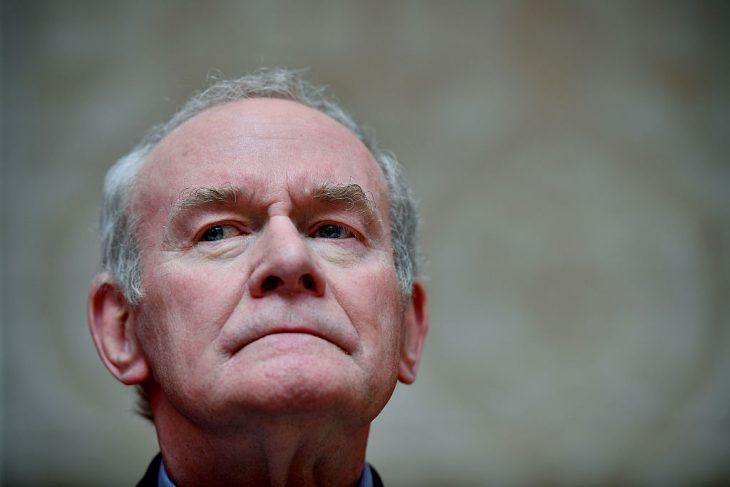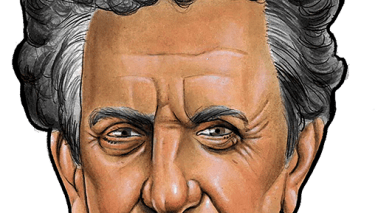I never met Martin McGuinness, but I was certainly affected by him from an early age. His decisions, and those of his colleagues on the IRA Army Council, indelibly coloured my childhood. Belfast in the 1970s and ’80s was a grey, fortified city, compelling in many ways, but permanently charged with the unpredictable electricity of violence.
Our local news steadily chronicled the shattering of families, in city streets and down winding border lanes that were full of birdsong before the bullets rang out. There were regular, respectful interviews with pallid widows and dazed widowers, and funerals attended by red-eyed, snuffling children tugged into stiff, smart clothes to pay formal respects to the end of family life as they had known it. The murders arrived singly or in pairs, via gunshot or car bombs, occasionally bursting into more audacious atrocities that claimed many lives simultaneously. The names of the bigger ones — Claudy, La Mon, Enniskillen — stained the memory with a vivid horror.

Get Britain's best politics newsletters
Register to get The Spectator's insight and opinion straight to your inbox. You can then read two free articles each week.
Already a subscriber? Log in







Comments
Join the debate for just £1 a month
Be part of the conversation with other Spectator readers by getting your first three months for £3.
UNLOCK ACCESS Just £1 a monthAlready a subscriber? Log in